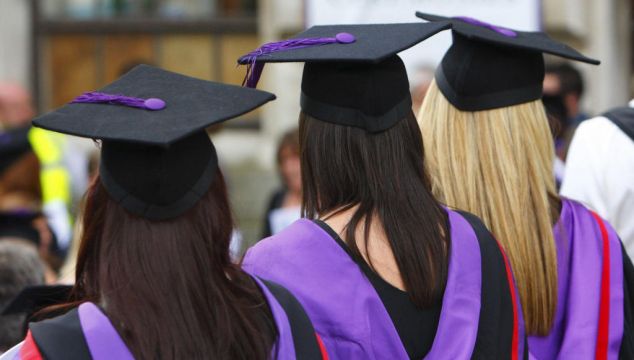Over a fifth of young men and almost a third of young women are experiencing symptoms of depression, according to a new study.
The survey of more than 5,000 20-year-olds and their parents, carried out by the Economic and Social Research Institute, offers an insight into the lives of Irish 20-year-olds.
The ESRI study shows that 22 per cent of men and 32 per cent of women that age scored highly for symptoms of depression.
The results of the survey, based on the long-term Growing Up In Ireland study, show that higher levels of depressive symptoms are associated with previous experience of symptoms as a teenager.
Dr Desmond O’Mahony, one of the authors of the ESRI report, called the finding “a worrying trend for the mental health of Ireland’s young adults”.
The wide-ranging data was collected just before the Covid-19 pandemic began.
It shows that over two-thirds of 20-year-olds were in education or training, with 26 per cent in either a full or part-time job.
The study also found a clear link between young people still being in education and their own parents’ level of education.
A significant proportion of all 20-year-olds, at 87 per cent, had taken part in at least one education or training course since leaving school
However, the researchers discovered that 86 per cent of 20-year-olds who came from a household where parents had degree-level qualifications went to higher education compared to 48 per cent for those whose parents were educated to Junior Cert level or lower.
On the issue of housing, 68 per cent of 20-year-olds still lived at home with their parents, with just under a third living somewhere else.
Among those living away from home, 87 per cent said they spent several nights a month at their parents’ house.
The research also found that just over a quarter of 20-year-olds were in work as their main occupation.
Two-thirds of students worked during term time, with 85 per cent working up to 20 hours per week.
It also found that 82 per cent earned €200 or less a week.
Among the 20-year-olds surveyed, nearly half hoped to be in a managerial or technical position by the age of 30, while 22 per cent wanted to be in a professional role.
More men believed they would be in a professional role in the next decade, compared to women.
The data also showed that 30 per cent of those from families on the highest incomes were hoping to be in a professional role by the age of 30, compared to 16 per cent among those from the lowest income group.
The survey also asked the 20-year-olds about sex and relationships.
It found that 84 per cent of young adults had had sex, with over half becoming sexually active between the ages of 17 and 20.
Researchers discovered that while the vast majority of young people knew that wearing a condom is the best way to prevent STDs, only a third of sexually active young adults used condoms each time they had sex.
Other findings saw 15 per cent of 20-year-olds describing themselves as daily smokers, while around 96 per cent had drunk alcohol by the age of 20.
The average age for having their first alcoholic drink was 16.
It also found that over half of all 20-year-olds spent three hours online each day.
Dr Fergal Lynch, secretary general of the Department of Children and Youth, said: “These detailed findings will be an important resource for our department and our focus on equality, but also for policymakers working across a variety of Government departments and agencies, in areas that touch on young people’s lives such as health, education, employment and socio-emotional well-being.”







